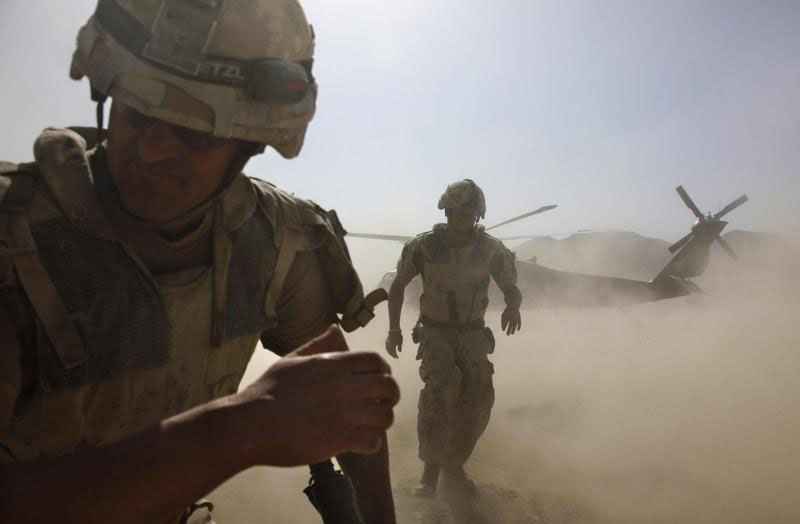The extent to which a federal government promise or social covenant to veterans to care for them and their families in the event of death or injury binds successive governments will be tested in a class action suit hoping to move forward for court certification in mid-2014.

The case is being taken forward by a Vancouver team of Miller Thomson LLP led by partner Donald Sorochan, who is representing six veterans with injuries sustained while serving Canada but feel they have not been fairly cared for.
Sorochan said the court challenge is unique. “It has never been argued that social covenant has constitutional importance.”
The cases hinges upon the New Veterans Charter of 2006 issued to deal with Afghanistan veterans and sets out what services and compensation returning injured veterans can receive. Payments are lump-sum with a cap of $250,000. The charter replaces previous Pension Act benefits, which were long-term and monthly.
“What we are suing for is really a constitutional challenge in many respects,” said Sorochan, who maintains the federal government provides a lesser standard of care to veterans under the NVC than those given to other service men and women under the Pension Act. Sorochan’s team is arguing the federal government does not have the right to limit that level of care and compensation.
The problem facing veterans under the NVC was brought to his attention when a neighbor asked for help after his son Gavin Flett, a reservist, had been deployed to Afghanistan where he sustained severe leg injuries while felling a tree. He has had surgeries on the smashed legs and ongoing medical problems. The federal government’s NVC, which provides lump sum payments, paid out $13,500 based upon a rate established for various injuries and income loss.
Sorochan said he is not against lump-sum payments if they are adequate to meet the individual’s long- term needs for physical or psychological support when an injury has occurred. Nor, is he advocating suing for battlefield decisions. “I am not advocating the negligence of a battlefield decision,” he said, but “if a person is injured through service to his or her country” then there should be fair compensation.
Sorochan said a social covenant was made to military personnel during the First World War by Prime Minister Robert Borden in 1917.
“It is about promises that Borden made, mostly to men in those days and prior to Vimy Ridge, that if you fight for your country and you are injured, we will care for you and for your family if you fell,” said Sorochan. “That social covenant was not made just at one time but was repeated and also in veteran legislation from the First World War until this new charter. All of a sudden that disappears.’’
Sorochan claims that social covenant is of the same “constitutional importance as promises by the representatives of government to the First Nations” where court cases evoked the legal doctrine of “honour of the Crown” which asserts that Canada is honour bound to carry out the promises of the social covenant.
The federal government had earlier attempted to get the action dismissed but in
Scott v. Canada (Attorney General), released Sept. 6, 2013, the justice described the action as “about promises the Canadian government made to men and women injured while in service to their country and whether it is obliged to fulfill those promises.”
The court permitted the action to continue on the basis of the social covenant and the honour of the Crown pleadings as well as claims for breach of fiduciary duty and claims under the Charter.
In the September ruling, the federal government acknowledged the NVC did not provide the same coverage that was provided under the Pension Act.
“This was more a move by government to save money,” said Sorochan as the government dealt with Afghanistan war veterans. But, Sorochan does not believe the government has the right to erode the social covenant based on federal government budgeting. This particular covenant differs from other normal government issues that may transcend several governments and parties in power.
He said many of today’s veterans are returning home to find they are facing disabilities with little compensation and feel the Canadian government has abandoned them. The spate of four suicides of military men in late 2014 has furthered steeled his resolve to see the case through.
Sorochan, though, would like to see the federal government settle the issue out of court.
“There are really two courts — there is the law court and the second is the court of public opinion.” Sorochon doesn’t believe there is a good enough defense that government can rally to win in the court of public opinion.

 The case is being taken forward by a Vancouver team of Miller Thomson LLP led by partner Donald Sorochan, who is representing six veterans with injuries sustained while serving Canada but feel they have not been fairly cared for.
The case is being taken forward by a Vancouver team of Miller Thomson LLP led by partner Donald Sorochan, who is representing six veterans with injuries sustained while serving Canada but feel they have not been fairly cared for.